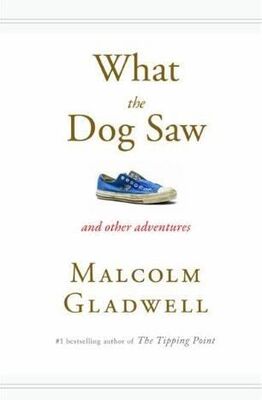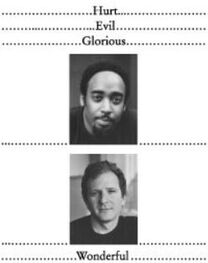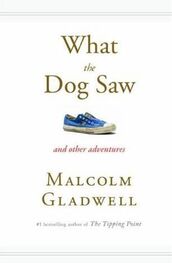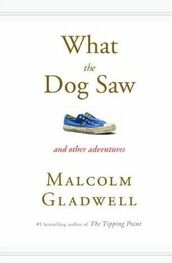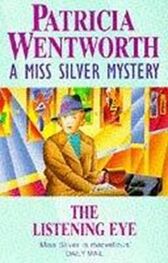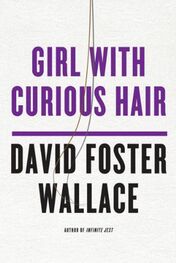Psychologists call this tendency – to fixate on supposedly stable character traits and overlook the influence of context – the Fundamental Attribution Error, and if you combine this error with what we know about snap judgments, the interview becomes an even more problematic encounter. Not only had I let my first impressions color the information I gathered about Myers, but I had also assumed that the way he behaved with me in an interview setting was indicative of the way he would always behave. It isn’t that the interview is useless; what I learned about Myers – that he and I get along well – is something I could never have gotten from a résumé or by talking to his references. It’s just that our conversation turns out to have been less useful, and potentially more misleading, than I had supposed. That most basic of human rituals – the conversation with a stranger – turns out to be a minefield.
Not long after I met with Nolan Myers, I talked with a human-resources consultant from Pasadena named Justin Menkes. Menkes’s job is to figure out how to extract meaning from face-to-face encounters, and with that in mind he agreed to spend an hour interviewing me the way he thinks interviewing ought to be done. It felt, going in, not unlike a visit to a shrink, except that instead of having months, if not years, to work things out, Menkes was set upon stripping away my secrets in one session. Consider, he told me, a commonly asked question like “Describe a few situations in which your work was criticized. How did you handle the criticism?” The problem, Menkes said, is that it’s much too obvious what the interviewee is supposed to say. “There was a situation where I was working on a project, and I didn’t do as well as I could have,” he said, adopting a mock-sincere singsong. “My boss gave me some constructive criticism. And I redid the project. It hurt. Yet we worked it out.” The same is true of the question “What would your friends say about you?” – to which the correct answer (preferably preceded by a pause, as if to suggest that it had never dawned on you that someone would ask such a question) is “My guess is that they would call me a people person – either that or a hard worker.”
Myers and I had talked about obvious questions, too. “What is your greatest weakness?” I asked him. He answered, “I tried to work on a project my freshman year, a children’s festival. I was trying to start a festival as a benefit here in Boston. And I had a number of guys working with me. I started getting concerned with the scope of the project we were working on – how much responsibility we had, getting things done. I really put the brakes on, but in retrospect I really think we could have done it and done a great job.”
Then Myers grinned and said, as an aside, “Do I truly think that is a fault? Honestly, no.” And, of course, he’s right. All I’d really asked him was whether he could describe a personal strength as if it were a weakness, and in answering as he did, he had merely demonstrated his knowledge of the unwritten rules of the interview.
But, Menkes said, what if those questions were rephrased so that the answers weren’t obvious? For example: “At your weekly team meetings, your boss unexpectedly begins aggressively critiquing your performance on a current project. What do you do?”
I felt a twinge of anxiety. What would I do? I remembered a terrible boss I’d had years ago. “I’d probably be upset,” I said. “But I doubt I’d say anything. I’d probably just walk away.” Menkes gave no indication whether he was concerned or pleased by that answer. He simply pointed out that another person might well have said something like “I’d go and see my boss later in private, and confront him about why he embarrassed me in front of my team.” I was saying that I would probably handle criticism – even inappropriate criticism – from a superior with stoicism; in the second case, the applicant was saying he or she would adopt a more confrontational style. Or, at least, we were telling the interviewer that the workplace demands either stoicism or confrontation – and to Menkes these are revealing and pertinent pieces of information.
Menkes moved on to another area – handling stress. A typical question in this area is something like “Tell me about a time when you had to do several things at once. How did you handle the situation? How did you decide what to do first?” Menkes says this is also too easy. “I just had to be very organized,” he began again in his mock-sincere singsong. “I had to multitask. I had to prioritize and delegate appropriately. I checked in frequently with my boss.” Here’s how Menkes rephrased it: “You’re in a situation where you have two very important responsibilities that both have a deadline that is impossible to meet. You cannot accomplish both. How do you handle that situation?”
“Well,” I said, “I would look at the two and decide what I was best at, and then go to my boss and say, ‘It’s better that I do one well than both poorly,’ and we’d figure out who else could do the other task.”
Menkes immediately seized on a telling detail in my answer. I was interested in what job I would do best. But isn’t the key issue what job the company most needed to have done? With that comment, I had revealed something valuable: that in a time of work-related crisis I start from a self-centered consideration. “Perhaps you are a bit of a solo practitioner,” Menkes said diplomatically. “That’s an essential bit of information.”
Menkes deliberately wasn’t drawing any broad conclusions. If we are not people who are shy or talkative or outspoken but people who are shy in some contexts, talkative in other situations, and outspoken in still other areas, then what it means to know someone is to catalog and appreciate all those variations. Menkes was trying to begin that process of cataloging. This interviewing technique is known as structured interviewing, and in studies by industrial psychologists it has been shown to be the only kind of interviewing that has any success at all in predicting performance in the workplace. In the structured interviews, the format is fairly rigid. Each applicant is treated in precisely the same manner. The questions are scripted. The interviewers are carefully trained, and each applicant is rated on a series of predetermined scales.
What is interesting about the structured interview is how narrow its objectives are. When I interviewed Nolan Myers I was groping for some kind of global sense of who he was; Menkes seemed entirely uninterested in arriving at that same general sense of me – he seemed to realize how foolish that expectation was for an hour-long interview. The structured interview works precisely because it isn’t really an interview; it isn’t about getting to know someone, in a traditional sense. It’s as much concerned with rejecting information as it is with collecting it.
Not surprisingly, interview specialists have found it extraordinarily difficult to persuade most employers to adopt the structured interview. It just doesn’t feel right. For most of us, hiring someone is essentially a romantic process, in which the job interview functions as a desexualized version of a date. We are looking for someone with whom we have a certain chemistry, even if the coupling that results ends in tears and the pursuer and the pursued turn out to have nothing in common. We want the unlimited promise of a love affair. The structured interview, by contrast, seems to offer only the dry logic and practicality of an arranged marriage.
Nolan Myers agonized over which job to take. He spent half an hour on the phone with Steve Ballmer, and Ballmer was very persuasive. “He gave me very, very good advice,” Myers says of his conversations with the Microsoft CEO. “He felt that I should go to the place that excited me the most and that I thought would be best for my career. He offered to be my mentor.” Myers says he talked to his parents every day about what to do. In February, he flew out to California and spent a Saturday going from one Tellme executive to another, asking and answering questions. “Basically, I had three things I was looking for. One was long-term goals for the company. Where did they see themselves in five years? Second, what position would I be playing in the company?” He stopped and burst out laughing. “And I forget what the third one is.” In March, Myers committed to Tellme.
Читать дальше